 | |
Have you Heard?
It’s easier than ever to bring the Teen Dating Violence Awareness Program, Advocating for my Relationships (ADMYRE), to your classroom! ADMYRE now has two options in addition to inviting the PIAL facilitators to your classroom.
In-Person Kit
The first option is to purchase an in-person kit that will be mailed to you. The in-person kit includes all materials and instructions to facilitate ADMYRE in person to students/youth including online access to digital materials. You will need to provide a large room and the staff to run the program. The ADMYRE in-person kit is appropriate for middle school and high school students.
Online
The second option is an asynchronous, Online format. With this option, you will receive an access link to a 100% virtual program that can be shared with students/youth to complete on a computer, laptop or iPad. The ADMYRE Online program is appropriate for high school students only. We are creating an online version for middle school students that will be ready in early 2023.
For a limited time, the In-Person kit will be FREE thanks to a grant from the Office of Child Support Enforcement. As a part of using either the ADMYRE in-person kit or the ADMYRE Online Program, PIAL does require that your students participate in our research to ensure the program continues to meet the needs of the students. Students will complete a short, electronic survey before and after the program.
| |
|
Peer to Peer Marketing Campaign
Are you or someone you know a parent between the ages of 18-25? We want to hear your voice! PIAL is starting a peer-to-peer marketing campaign to amplify the voices of young parents. You can receive up to $100 in gift cards for creating Tik Tok videos that YOU would like to see as a young parent. Use your creativity and experiences to encourage other young parents and make a difference. Reach out to [email protected] to learn more.
| |
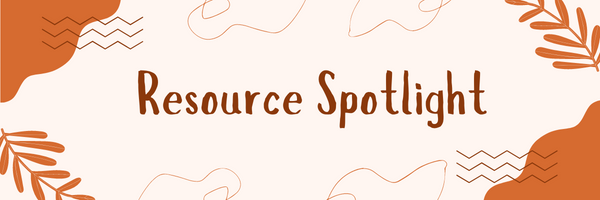 | 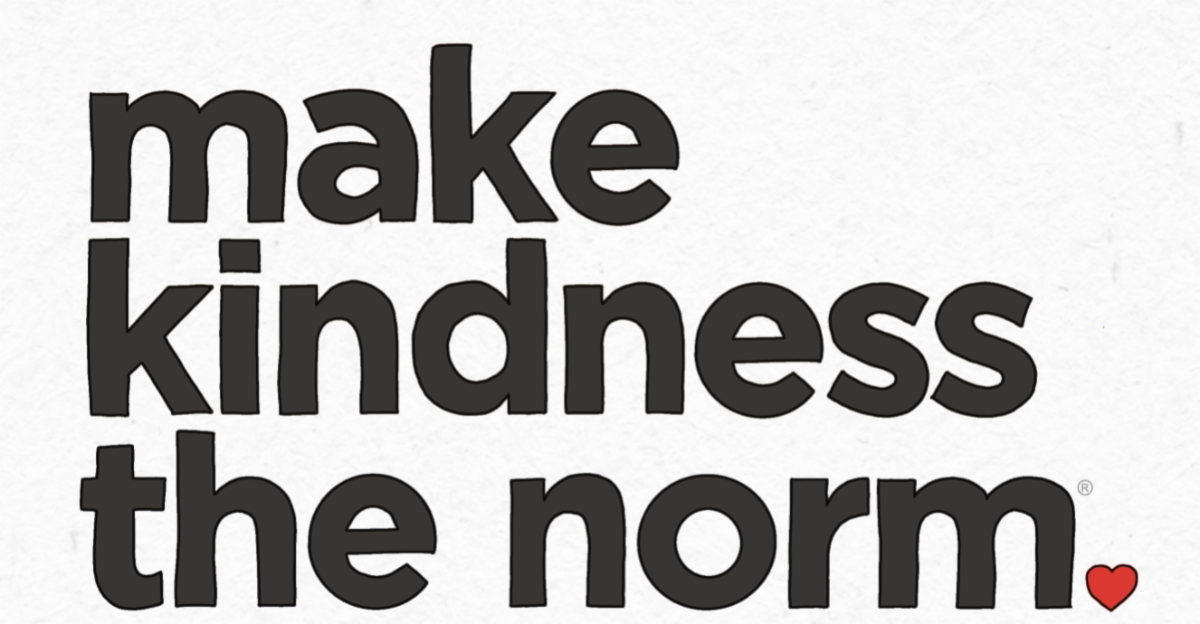 | |
The Random Acts of Kindness Foundation
One way to prevent bullying in schools is to teach about kindness and what that looks like in the school and community setting. The Random Acts of Kindness Foundation has a free, 16-week high school curriculum that covers topics of respect, caring, inclusiveness, integrity, responsibility, and courage. Each week has five lessons surrounding the topic and teachers can pick and choose from the lessons to implement in their classrooms.
The lessons are based on the kindness framework, where in each lesson, students will share what they learned and their experiences, students will be inspired, they will feel empowered from class discussions, they can act in the lesson and outside of the classroom, and finally they will reflect. There is also a community-based project outline where students identify what area of kindness is missing in their community and execute a plan to meet that need. Aside from the lessons, the Random Acts of Kindness foundation provides kindness training, posters, games, mini lessons and more!
Check out the link below to learn more about the curriculum and how to implement it in your classroom!
| 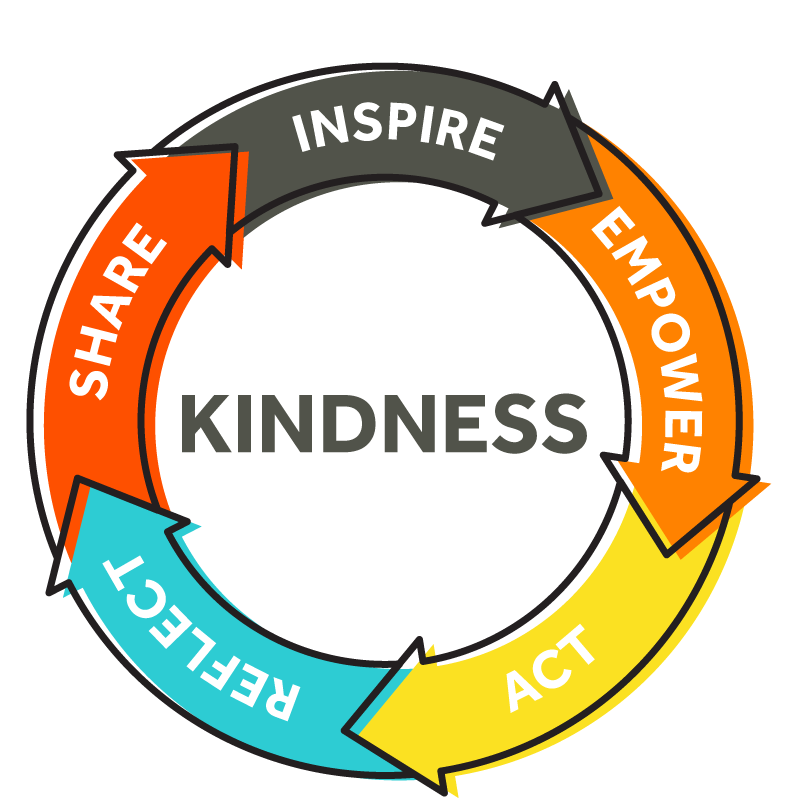 | |
|
Module 2: Peer Pressure
October is Bullying Awareness month. We are using this time to bring awareness to bullying and prevention in schools. One conflict that many students face is how to intervene when they see a bullying situation happening. Students are met with the difficult task of overcoming peer pressure and intervening. Module 2: Peer Pressure helps students to identify different types of peer pressure they may be feeling as well as gives them the tools to overcome peer pressure situations and be confident in their decisions.
Polite doubt and building self-esteem are powerful tools students can use to combat bullying. Students learn that polite doubt can be used as an opportunity to express an opposing view and not conform to social influence. Students participate in an activity where they answer “I am” statements. This activity helps them recognize their identity, what makes them unique, and build confidence in themselves. Students learn that being confident with themselves and who they are empowers them to embrace differences and take a stand against peer pressure that goes against their values. Check out the graphic below to learn the impact of polite doubt in a classroom and don’t forget to request a visit!
| |
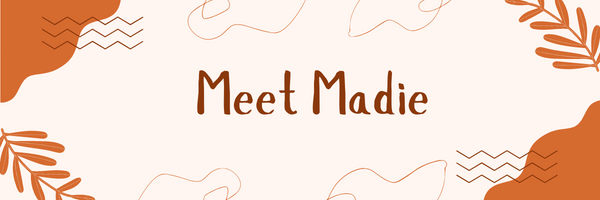 | |
New Member Spotlight
My name is Madie Dunn, and I am a senior at Iowa State University. I grew up in Ankeny, IA, so I have been familiar with ISU my whole life, though I somehow grew up as a Hawkeye fan. I am studying Elementary Education with endorsements in reading and English language arts, and I have a minor in Learning Technologies. As soon as I stepped onto campus, I knew Iowa State was the right place for me.
I grew up playing soccer and then halfway through high school, I decided to play rugby. I have been playing rugby for 6 years now and it has taken me all over the country with the most amazing memories. I am now a Collegiate All-American Rugby player as well as the President and Captain of the Iowa State Women's Rugby Team. After graduation, I hope to play professionally and eventually start coaching. When I am not playing rugby and hanging out with my teammates, you can find me riding my bike, reading thriller books, or spending time with my family and friends.
What really drew me to PIAL was the idea behind connecting with students on topics that they may not have the opportunities to learn about in the general education classrooms. I really admire how PIAL provides such powerful and equitable information to its audiences. I have felt extremely welcomed by the PIAL staff so far and I am thrilled to visit more schools and further my connections with other PIAL team members.
| |
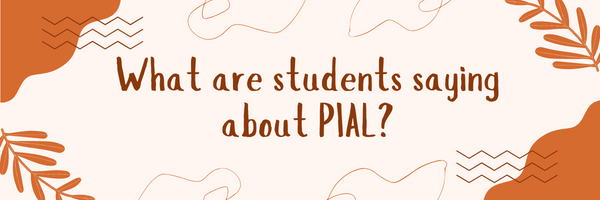 | |
Objective 1 Brief Report
In the Fall of 2021, after receiving a federal grant from the Office of Child Support Enforcement, PIAL started a program evaluation effort to assess the audiences PIAL presents to, how students apply what they learn in the PIAL modules, the consistency of facilitation of the PIAL modules, and future direction for the PIAL curriculum. The purpose of the PIAL program evaluation is to assess the efficacy of the program, or in other words, to ensure that students are learning something from the modules, and are able to apply it to their own lives.
To achieve this goal, PIAL conducted a study utilizing pre-comprehensive and post-comprehensive assessments that captures students’ knowledge on the topics of each of the modules. One group of students, called the treatment group, received a PIAL module, and another group, the control group, did not receive a PIAL module. Through this method, the research team is able to analyze the knowledge gained from the modules and account for potential confounding variables, since there is a control group.
Let’s hear what impacted the students and how they said they will apply what they learned. Check out the graphic below!
| |
|
The study ran into some limitations due to the small sample size, leading the research team to change participation recruitment methods to offer more incentives for students and teachers participating in the study, as well as clearer communication channels to ensure teachers have all of the information they need.
PIAL is looking forward to continuing this study to pursue our goal of providing relevant and useful information that students can apply to their lives.
| |
|
The PIAL Blog
In honor of National Bullying Prevention Month, the PIAL blog focuses on resources for teachers and how bullying prevention connects with the PIAL cirriculum!
| | | | |